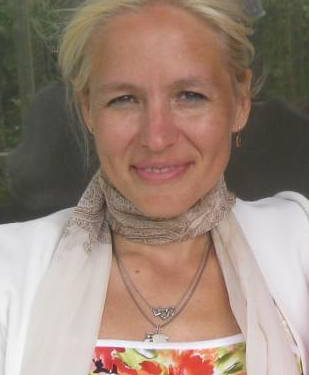Häly Laasme
On June 4, 2021, the United States National Energy and Utility Affordability Coalition (NEUAC) announced the final nominees for the Sister Pat Kelley Achievement Award. Häly Laasme, the State of Delaware’s Energy Assistance Director, is one of the three finalists. The award recognizes a person with exemplary achievement in furthering NEUAC’s objectives of increasing public awareness of low-income energy problems, advancing energy assistance policy and promoting charitable energy assistance.
Häly serves as the Northeast Regional Representative in the Board of Directors of the National Energy Assistance Director’s Association (NEADA) for Connecticut, Delaware, Maine, Massachusetts, New Hampshire, New Jersey, New York, Pennsylvania, Rhode Island, and Vermont. She also serves in the Executive Committee of the Board of Directors of the Energy Services Coalition (ESC), and in the Advisory Board of Directors of the NEUAC.
In 2018 she effectively consulted with other global experts to revise the international humanitarian standards for the global handbook SPHERE and was acknowledged for her contributions to two chapters, Health and Shelter & Settlement. In 2019, her persistent efforts brought together two major U.S. energy associations, NEADA and the United States Energy Association (USEA), to voice their common concerns over Energy Access and Affordability in the United States, which was broadcasted by the National Public Affairs Network, C-SPAN, and she attended as one of the panel members. In the same year she successfully contested transparency of the methodology of the global Sustainable Development Indicators of Energy Access published by the Oxford University Global Data Lab and World Bank Group that led to the following clarifications on their websites: “Countries considered as “developed” by the UN, and classified as high income are assumed to have an electrification rate of 100% from the first year the country entered the category.”
Since 2020, she has concentrated on advocating for energy access being indisputably included into human rights framework and increasing global collaboration in energy justice. She organized an energy poverty discussion between NEADA and the European Union Energy Poverty Observatory (EU EPO), participated in the American Council for an Energy Efficient Economy (ACEEE) Bridging Health and Energy Efficiency (BHEE) Data Primer Working Group and recorded a podcast for the United States Association for Energy Economics (USAEE) called “Energy Access through the Lens of Human Security and Human Rights.”
Most recently she moderated an international panel on “Multidimensional Challenges of Energy Justice: Finding Global Synergy in Energy Systems” for the International Association for Energy Economics (IAEE) and was invited to talk at the Delaware Health, Energy, and Housing Forum, that was hosted by the Delaware Lt. Governor.
VES













